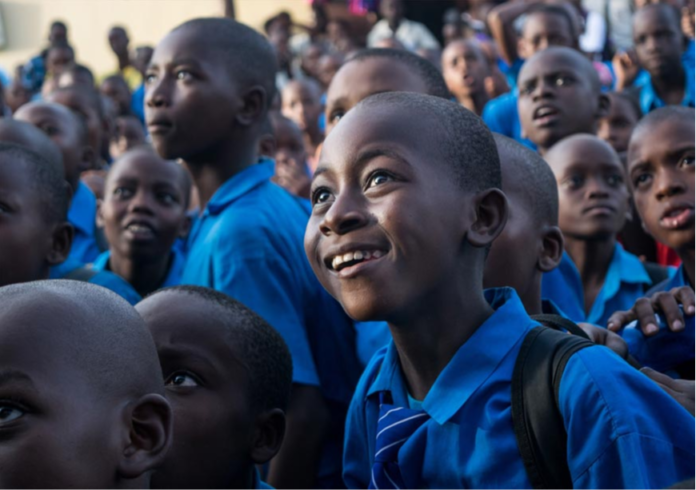A partnership between India and Africa should be reciprocal, with both regions learning from each other to improve their education systems.
As Africa works to educate and upskill its youth amidst numerous challenges, India emerges as a potential valuable partner in this endeavor, according to a report by Malancha Chakrabarty in Observer Research Foundation.
Africa’s population, currently around 1.4 billion, is projected to soar to 2.5 billion by 2050. The continent is often dubbed the “youngest” due to nearly 60 percent of its population being under 25 years old. This demographic offers significant economic development opportunities in an aging world, provided there are substantial investments in education and skill development. Recognizing this, the African Union has designated education and skilling as the theme for 2024.
However, Africa’s education sector presents a grim picture. The COVID-19 pandemic further weakened the already fragile education systems, leading to school closures and increased dropout rates. Currently, approximately 20 percent of primary-school-age children and 58 percent of upper-primary-school-age children in Sub-Saharan Africa are not in school. Countries like South Sudan, Djibouti, and Sudan have some of the highest dropout rates, Malancha Chakrabarty wrote.
Significant inequities plague the education sector. According to UNICEF, children from the poorest quintile receive less than 10 percent of public education spending. In Mali, Guinea, and Chad, students from the wealthiest households benefit disproportionately more from public education funds. Gender disparities are also prevalent, with fewer girls in higher education and higher dropout rates for girls at the secondary level.
Quality of education is another major concern, with many children failing to acquire basic literacy and numeracy skills. In countries like the Gambia and Ghana, fewer than 10 percent of children in grades 2 and 3 achieve minimum competency in mathematics. The International Monetary Fund (IMF) reports that much of Africa’s poor learning outcomes are due to a shortage of trained teachers, a trend that has worsened since 2000, according to Malancha Chakrabarty.
“Beyond government initiatives, Indian non-profit organizations are contributing to African education. For example, Pratham’s Teaching at the Right Level (TaRL) approach has improved learning outcomes in Zambia and Botswana.”
African governments face mounting difficulties in meeting the SDG 4 goal of universal quality education due to high debt burdens and shrinking budgets. The IMF estimates that to achieve universal primary and secondary enrollment, public and private education expenditures must double by 2030. Currently, Sub-Saharan Africa’s public education spending averages 3.2 percent of GDP, below the global average of 4 percent. Aid for education has also stagnated, with a decline in absolute education aid to least developed countries during the pandemic.
In this context, India can be a crucial partner for Africa. India’s development partnership program has emphasized education and capacity building since the 1950s. The Indian Technical and Economic Cooperation Programme (ITEC), launched in 1964, offers numerous scholarships to students from developing countries. African students have been significant beneficiaries, and Indian teachers have played vital roles in countries like Ethiopia.
India’s capacity-building initiatives have grown substantially, supporting significant IT projects like the PAN-African e-Network and e-VidyaBharati AarogyaBharati (e-VBAB). Prime Minister Narendra Modi has reaffirmed India’s commitment to African development, emphasizing local capacity building and opportunities. India is also establishing higher education institutions such as IIT Madras and the National Forensic Sciences University in Africa, Malancha Chakrabarty wrote.
There is ample scope to expand collaboration in areas like teacher training, pedagogy, and curriculum development to enhance education quality at all levels. India’s experience could be particularly relevant for Africa, as both regions face similar educational challenges. Policies from India’s National Education Policy and schemes like the mid-day meal program can offer valuable lessons to African countries, Chakrabarty mentioned.
(Malancha Chakrabarty is a senior fellow and Deputy Director (Research) at the Observer Research Foundation.)




